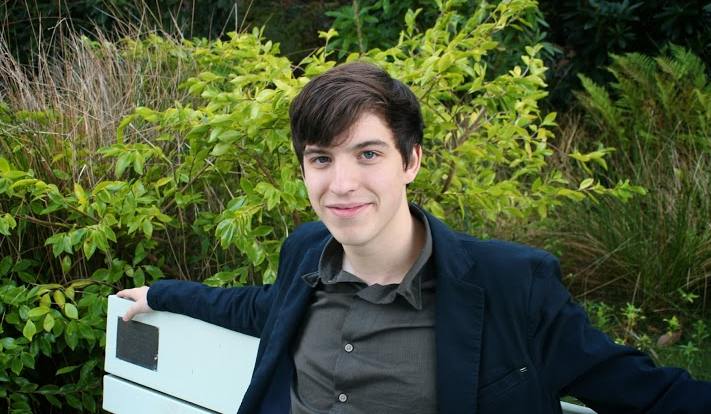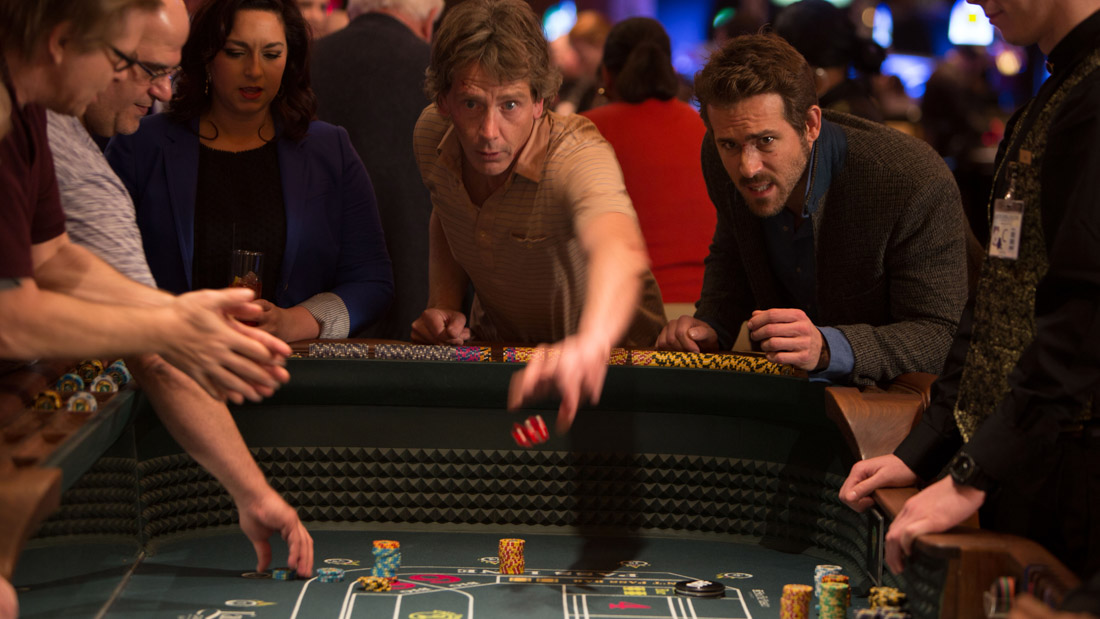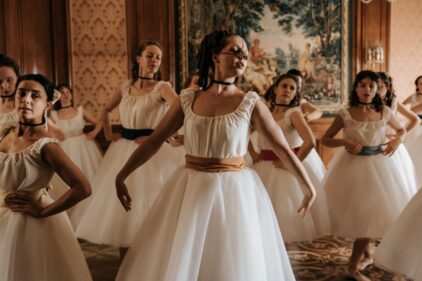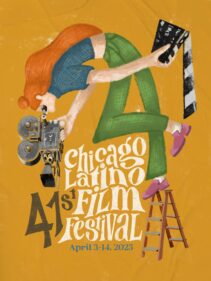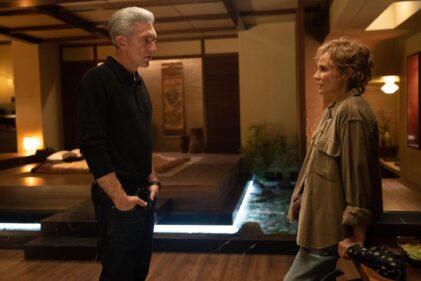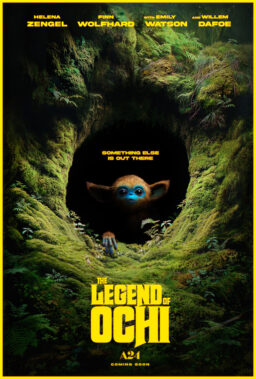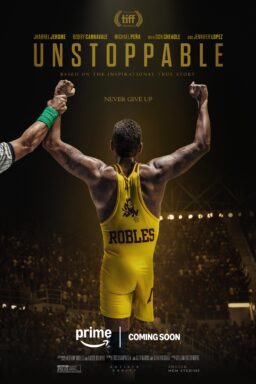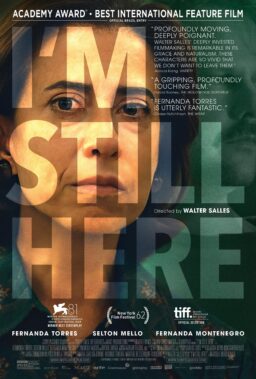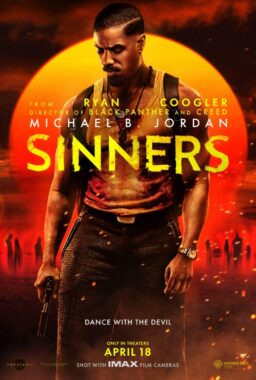Contrary to some art forms, film
does not exist without collaboration. And yet, despite filmmaking being a
collaborative effort, there are few directorial teams working in Hollywood
today. This makes Anna Boden and Ryan Fleck, the dynamic duo behind “Half
Nelson,” “Sugar” and “It’s Kind of a Funny Story,” outliers. Since meeting over
15 years ago at NYU’s TISCH School of Arts, Boden and Fleck have cobbled together
a strong filmography—each film imbued with their signature,
wear-the-emotions-on-the-sleeve style. Their winning streak continues with
“Mississippi Grind,” a road trip movie about two gamblers (played by Ben
Mendelsohn and Ryan Reynolds) looking for their big break; the one hand that
will allow them to pay off their debts and start fresh. Shortly after the
film’s premiere here at this year’s Sundance Film Festival, Boden and Fleck
spoke to RogerEbert.com about the
superstitions of gambling (and filmmaking), the research they did in
preparation for the movie and how their partnership has changed over the years.
From “Half Nelson” to
“Sugar” to “It’s Kind of A Funny Story,” what’s the through line in the films
you two choose to make?
RYAN FLECK: Through line: you know, I don’t know. I see why
you would look for it. I’m just looking for it too. That’s not our agenda, but
if there is one, you could say – this maybe even sounds a little trite – but
most movies have someone searching, you know? Trying to figure out what it
means to be a human being, and what it means to try and live together on this
planet. And we tend to like complicated people that are not easily explained.
So if there’s anything, I think that’s just what we’re interested in seeing as
filmmakers, and as an audience. And that’s also what we’re interested in making
as filmmakers.
You two started
working together in college, ten years ago?
RF: Yeah.
ANNA BODEN: Longer now.
RF: Fifteen now.
AB: We don’t want to age ourselves.
RF: Yeah, it’s been about fifteen years.
It’s a pretty
incredible collaboration.
RF: Yeah, there are the Coen brothers, obviously, which are
sort of the staples. The Dardenne brothers. And then there’s us [laughs]. There
are wonderful teams out there, like the “American Splendor” duo [Robert
Pulcini and Shari Stringer Berman]. They’ve been making movies for a little
while as well.
Has much changed over
the past fifteen years?
AB: I think a lot’s changed. I mean, television has really
changed a lot, and changed the way movie people think about working in the
storytelling business.
It’s changed your
thinking, too?
AB: Not that much yet, but I think it’s starting to
certainly affect the way that we think about telling stories as we have to
become more engaged in these long-form serials.
It’s now a viable
option where you don’t have to sacrifice your voice.
RF: Yeah. It used to feel like, “Eh, TV. What’s good on
TV?”
SF: Now it’s the opposite. It’s like, “What’s good in
the theater?”
RF: Hopefully “Mississippi Grind” will be good in
the theater.
Are you two into
gambling?
RF: The truth is, we weren’t. And in fact, that was part of
the impulse for wanting to make this movie, is I always wanted to learn how to
play poker. It seemed like a cool thing. Guys that play poker. That’s like a
manly thing, right? I wanted to man up and learn how to play poker, so that was
part of the fun of making this movie, was that we learned a lot about it.
But it seems you both
are interested in diving into the darker side of gambling, which is always
there but not always explored.
RF: Yeah, there are ups and downs for sure, as those who
play poker know. And the more we learned about it, we became interested in
seeing how — there are skilled players, there are really good players — but
even the best players can play everything right and can be taken down by almost
a draw of a random card.
The way your
screenplay taps into the superstitious nature of gambling is spot on.
AB: That’s cool. I’m glad you said that. And I’m not a
gambler, but I’m very superstitious. A lot of gamblers are, and that’s
something I really relate to in gamblers. I was deciding what little things I
should wear on this trip that were going to make the movie do well or not.
Since neither of you are gamblers, what was your research process like in writing these characters?
AB: You discover the character a little bit as you write,
and we weren’t writing it based on a specific person. But we certainly did talk
to a lot of people and spent time in these places while we were writing the
story. I wouldn’t say that we did anything based on any particular one, but we
drew from a lot of different people we met as we were thinking.
And you two learned
how to play?
RF: Yeah. We forced ourselves to — we did the road trip for
research, from Iowa to New Orleans. And by the time we got to Tunica,
Mississippi, we realized, “We haven’t really played poker yet at a table
full of strangers.” So we entered a sixty-dollar buy-in tournament, and it
was the first time I’d ever played.
How was it?
RF: Oh man, I was terrified. My heart was beating. And I
still didn’t know the rules. So there was one hand where I had two pair, and I
was like, “I got this.” When do you have two pair? I didn’t even
realize that that’s not even really a great hand. But in any case, I was going
all in. I put all these chips in, and people kept raising each other, and this
other guy, he turned them over, he had a flush but I didn’t even realize what
that was. So I’m like, “Do I reach for the chips?” It was so embarrassing.
You should have reached
for them just to see their reaction.
RF: (Laughs) No, then they shuffled over to him and I’m
like, “What? Do they know the rules here? I got two pair, bro.”
AB: I’m pretty sure that I was the one who did that. I’d always
understood what the cards meant. I never had a problem with that. I’d played
before, but just with friends. I think what I found most interesting and
revealing about the process was sitting at a table with these same people for
hours. And they’re people you’d never otherwise meet and talk to.
All of them have
their own reasons for being there.
AB: And also, I think being a female, it made people more
talkative than they necessarily were on their own. Because being a female alone
at a table, it definitely brought out a …
RF: She did not fit in with this group. She definitely
looked like an outsider.
